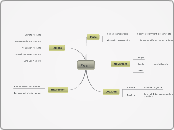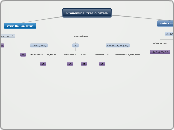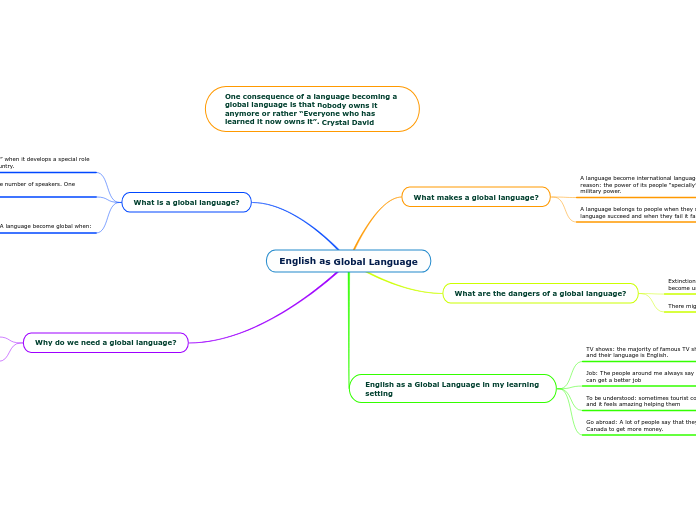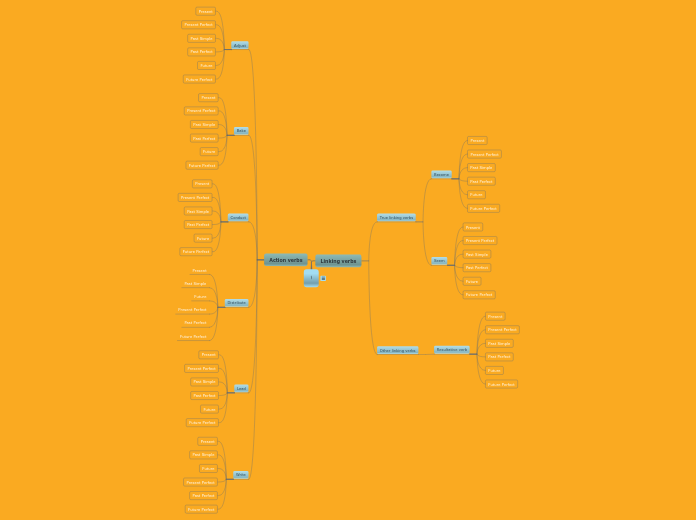The Indonesian Language
Conversational Indonesian
When - kalau, waktu, kapan
Waktu is used to mean 'when' in the past.
Waktu saya tinggal di sini jalan ini belum membuat.
When I lived here this road had not yet been made.
Kalau is used for 'when' in the future or 'if'
Kala saya ke pepustukaan saya bisa membaca buku.
When I go to the library I can read a book.
Anda boleh makan kalau lapar.
You can eat when hungry
Kapan is only used when asking questions
Kapan mau berangkat?
When do you want to leave?
Telling time & Parts of the day
Months of the year
THe name of the month is often preceeded by the word bulan (month) in sentences.
Anda berangkat bulan apa nanti?
Kberangkatan bulan Januari depan
What month do you depart?
Departure is next Januari.
Days of the week
Days of the week are often preceeded by the work hari (day) in sentences.
Sekolah mulai hari apa?
Sekolah mulai Hari Senin.
Besok = tommorow
Lusa = the day after tomorrow
Kemarin = yesterday
Kemarin dulu = the day before yesterday
Expressing time
Dulu and tadi - before
Tadi covers the period roughly 24 hours before the current time.
Saya sudah mandi tadi - I showered earlier today.
Di mana tas saya tadi? - Where is my bag (that I had before)
Dulu is anytime before but can carry the connotation of a long time before.
Dulu Bahasa Ingriss dipelajari tetapi sekarang Bahasa Indonesia. - Before English was studied but now it is Indonesian.
Depan - next
Tahun = next
Tahun depan - next year
Bulan depan - next month
Ber-with root number
The prefix 'ber' can occur with any number and will mean 'to be in a group of that number'
Anda bersaudara berapa? How many brothers and sisters do you have? (Lit: You are brothered/sistered by how many?)
(Typically this response would include the responder)
Kami berempat There are four of us (Lit: we are in a group of four)
or
Saudaranya berapa? How many brothers and sisters do you have? (Lit: Your brothers and sisters are how many?)
(Typically this response, as in English, would not include the responder)
Saya punya tiga saudara
Directions
Family members
Addressing people formally
A man or woman in a formal situation is referred to using 'Ibu' (or 'Bu') and Bapak (or 'Pak') before their name.
Kepala sekolah kami Ibu Ratna - Our school principal is Ibu Ratna
When addressing the person directly Bu (Pak) followed by the persons name is used.
Apa kabar Bu Ratna - How are you, Bu Ratna?
To address this person as 'you', Ibu alone should be used
Apa Ibu akan pulang sekarang? - Are you going home know.
Expressing Age
Berapa umur
Used to ask how old.
Berapa umurnya? - How old are you?
Berapa umur anank itu? - How old is that child?
Berumur
'Berumur' is an intransitive form meaning 'be an age' and is usually followed by a number that indicates the subjects age.
Mary berumur tiga puluh tahun - Mary is 30 years old
Umur
'Umur' is the word for 'age'. Umur is a noun and is used as in 'the age of.....'
Umur Atah delapan belas tahun - The age of Atah is 18 years ( Atah is 18 years of age)
Dia umurnya tidak dikenal - His age is not known
Noun counters
Noun counters, or classifiers, are used in English and Indonesian to represent units of a given noun. When we count milk we may count 'bottles' of milk, for cattle we would count 'head' of cattle.
Common Indonesian counters include:
Orang - people
Buah - literally 'fruit': used for 'fruit' but also used generally for items other thatn people and animals
Ekor - literally 'tail': used for animals (as 'head' is used in English)
Batang: - literally 'stick': used for long thin items
Helai - literally 'sheet': used for paper and other things in sheet form
Biji: literally 'seed': used for small, individual items
Numbers
Duplication
Duplicated adjectives
Describing an action
Duplication of an adjective can also describe how and action is done.
Harus berlari cepat-cepat - You must run fast
Dia sedang menawar pintar-pintar - He is bargaining cleverly.
Shared characteristics
The nouns the adjective refers to all share the same characteristic
Mobil itu cepat-cepat - Those cars are fast
Buah ini segar-segar - This fruit is fresh
Duplicated nouns and adjectives
Duplicating a noun indicates a group of that noun. Duplication is not used for plurals.
Anak-anak masih tidur - The children (a large group) are still asleep.
Sepuluh anak akan datang ke Australia - Ten students will come to Australia (Note: no duplication)
Pisang-pisang dijual di pasar - Bananas are sold at the market
Nyoman harus beli pisang untuk sarapan - Nyoman must but bananas for breakfast
Duplicated question words
Duplicated question words written, with a hyphen, have specific meanings that must be learnt.
apa-apa = anything
siapa-siapa = anyone
mana-mana = everywhere
kapan-kapan = anytime, sometime
tidak apa-apa = it doesn't matter
Lebih & Paling
Lebih = more Paling = most
These terms precede adjectives to form comparative and superlative forms of those adjectives.
Lebih creates comparatives that in English would end in -er, bigger, faster, stronger.
Paling creates superlatives that in English would end in -est, biggest fastest, strongest
Saya mau makan yang lebih segar - I want to eat the one that is the freshest
Sekolah anda yang paling bagus - Your school is the best.
Ini lebih baik - This is better
Buah di pasar yang paling mahal - Fruit at the market is the most expensive
'dari'
When comparing items dari, meaning 'than', can be used.
Yang ini lebih baik dari yang lain. - This one is better than the rest
Buku saya lebih berat dari buku anda - My book is heavier than your book.
Yang
Yang is a nominaliser. Any term or phrase that follows yang becomes a noun.
Yang = the one who / which that
Yang kecil itu rambutan - That small one is a rambutan
Atha yang belajar di perpustakaan - Atha is the one who is studying in the library
Dia mau membeli yang murah - He wants to buy the cheap one
Yang besar yang murah - The big one is the cheap one
Mari
Mari means 'come on; let's'. It is a polite way of suggesting someone do something with the speaker.
Mari kita berenang - Let's go swimming.
Mari pergi pulang - Let's go home
Mari is also used as an informal way of saying goodbye.
Saya mau pergi pulang. Mari. - I want to go home. Bye
Mari - Goodbye
Baru followed by a verb
When baru is followed by a verb a phrase that means 'just did the action of the verb'.
Dia baru datang - She just arrived
Saya baru masak makan pagi - I just cooked breakfast
Kami baru pulang - We just got home
Seluruh vs Semua
Seluruh means 'whole; entire' and refers to one single item
Semua means 'all' and refers to multiple items.
seluruh sekolah - the whole school
semua sekolah - all schools
seluruh kamar - the whole room
semua kamar - all rooms
Short answers to questions
In informal speech there are many situations where a question may be answered with a short answer rather than repeating the whole sentence.
Listen to these examples.
Relative location
Indonesian has a number of terms that refer to relative location.
These terms can be used with 'di' (on/at), 'ke' (to) and 'dari' (from) to indicate relative location.
Key locational terms include 'sini' (here), 'sana' / 'situ' (there), dekat (near) and jauh (far)
Pronouns
Choice of pronouns is highly context specific and will reflect relationships (age, status, situation, etc.)
Refer to attached chart
Relative Time
Indonesian has no verb tenses and words that relate to time are used.
Nanti means 'later' in relation to now. (Not in relation to past events)
Saya mau datang nanti - I will come later
Dia belajar bahasa Indonesia nanti - He will study Indonesian later
Where 'later' is used in relation to an event that happened in the past we use 'lalu' or 'kemudian'
Saya ke bank, lalu (kemudian) pulang - I went to the bank and then went home
Dulu
One way of expressing relative time is to use 'dulu'. In this context 'dulu' means 'to do something first before something else'
Silakan duduk dulu - Please sit down first
Saya mau mandi dulu - I want to wash (before doing other things)
Saying please
Depending on context, there are three ways of saying please, these are, silahkan, tolong and coba.
Coba
Coba is used when strongly suggesting that someone do something. Usually used when addressing someone of lower status.
'Coba' is the root of the verb - 'try'
Coba menulis dalam buku anda - Please write in your book.
Tolong
Tolong is used when requestint assistance.
Tolong bawa tas itu - Please bring the bag
Tolong panggil polisi - Please call the police
Silahkan
Silahkan is used when inviting someone to do something.
Silahkan masuk - Please come in
Silahkan duduk - Please sit down
Silahkan makan - Please eat
Ommission of subject
When ovious, the subject of an Indonesian sentence may be omitted. This frequently occurs when asking questions of a person as the assumption is that the question is addressed to the person being spoken to.
Apa sudah mau pulang? - Are (you) already going home?
Apa sudah ke bank? - Have (you) already been to the bank?
Apa sudah kenal teman saya? - Have (you) already met my friend?
Mau ke mana? - Where do (you) want to go?
'Ada'
'Ada' means 'there is, are, was etc.'
Ada susu di atas meja. (There is milk on the table)
Ada orang di rumah. (There is someone home)
'Tidak ada' means 'there is, are, was etc. no'
TIdak ada orang di kelas (There was no one in class)
Tidak ada bank di sini (There is no bank here)
'Belum ada' means there is not yet.
'Ada' can also mean to 'be present', 'have' or 'own'. In this context meaning the same as 'punya'
Modals
Modals are words that express some aspect of the predicate.
Modals as short answers
Modals are commonly used as short answers to questions that contain them.
Apa anda mau ikut?
Ya mau.
Apa anda harus ke kelas?
Ya, harus.
Word order using modals
These words generally occur at the beginning of the predicate and appear in a fixed order that must be learnt.
Negatives precede modals and occur at the beginning of the predicate,
Dia bisa datang - He can come.
Dia harus bisa datang - He has to be able to come.
Dia tidak harus bisa datang - He does't have to be able to come.
Kami akan makan - We will eat.
Kami akan bisa makan - We will be able to eat.
Kami akan harus bisa makan - We will have to be able to eat
Kami tidak akan harus bisa makan - We will not have to be able to eat
'Akan', 'Harus', 'Sedang'
These words are modals, words that express a different aspect of the action in the predicate.
harus - 'have to, must'
bisa - 'can, be able to'
mau - 'want, going to'
sedang - 'in the process of'
'Sudah', 'Belum', 'Akan'
Modals indicating futurity
Sudah means 'already'.
Belum means 'not yet'.
Akan means 'will'
Sudah is often used in questions and statements.
Questions using sudah are often answere using sudah (affirmative) and belum (negative).
Sudah is often used as an affirmative answer in place of 'ya'
Subject and predicate
Subject and predicate are the basic elements of every sentence. When one of them is not expressed in Indonesian, context will make clear what it is.
The most common subjects are nouns or pronouns.
Predicte is that part of the sentence that tells us something about the subject. Predicates can be verbs or verb phrases.
In these examples the subject is in bold while the predicate is in italics
Kami pergi ke pasar.
John teman saya
Teman saya baik-baik saja
'-nya' as possesive
'..nya' is a suffix with several meanings.
One meaning is as a possesive meaning, 'his', 'hers', or 'your'
Ini kantornya - This is his/her/your office
Mary gurunya - Mary is his/her/your teacher
Kantornya baik - His/her/your office is fine
'..nya' can be used to identify some item that was previously mentioned (listen to examples)
'-nya as object'
'-nya- can be used to replace to replace the object of a verb when that object has been previously mentioned or is known.
'Laut dekat dari sini. Bisa melihatnya dari bukit itu'
Question words
Indonesian has a number of question words.
Here 'apa?' has a seperate use meaning 'what?'
'Apa' introducing a question
Apa is used to introduce a question where the response will be 'yes' or 'no'.
Apakah is an alternative form of apa and is interchangeable
Apa dia mau datang? (Does she want to come)
'Ya, dia mau' atau 'Tidak, dia tidak mau (datang)'
'Yes' & 'No'
Yes = Ya (very much as in English)
There are two forms of 'no'
Bukan is used to negate a noun. Generally the form used is '[noun] bukan (is not) [another noun]
In all others situations 'tidak' is used for the negative.
Verb tense
Indonesian does not have any verb tenses that indicate when an action takes place. Context is used to determine when the action takes place.
Dia guru - She is/was a teacher
'Mau' (want to, going to, can precede a verb to suggest the subject (person or thing completing the action) either wants to, or is going to do the action in the future.
Mary mau belajar Bahasa Indonesia - Mary is going to study Indonesian
Verb 'To be'
Indonesian does not have a verb 'to be' (i.e. is, am, are, was, were, be etc)
The meaning of these verbs is understood in Indonesian.
Singular or plural
Indonesian does not generally distinguish between singular and plural which should be determined through context.
Teman saya mahasiswa.
My friend is a student/My friends are students
Gurunya baik
The teacher is good/The teachers are good
Saya senang universitas di Australia
I like the university/ universities in Australia
Word Order
In Indonesian, the modifier always follows the noun.
The modifier may be an adjective, a possesive, another noun and so on.









